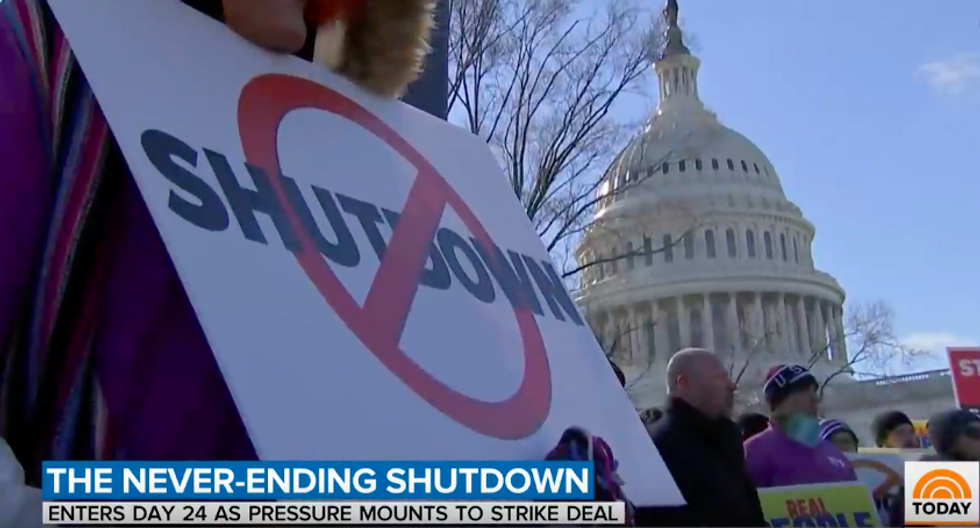In the early morning hours of December 22, the longest government shutdown in United States history began. At this writing, the government has been shut down for 24 days -- and counting.
The current shutdown revolves around President Trump's request for over five billion dollars to fund a U.S.-Mexico border wall, which he sees as a necessary response to the "massive Humanitarian Crisis" taking place at the southern border -- the flow of migrants from Central America. Democrats in Congress, who fervently deny the severity of the situation, refuse to allocate funds towards a wall, instead looking to negotiate other measures for border security. Unable to pass bipartisan spending legislation, the government remains closed.But what exactly is a shutdown, and what does it mean for ordinary Americans?
A government shutdown occurs when the annual appropriations bills that fund several government agencies and programs fail to reach passage by both Congress and the president. Congress is in charge of creating these bills, and each year the president must sign them into law in order to fund the government for a new fiscal period. In October, at the beginning of the current fiscal year, only a few of the necessary appropriations bills were enacted, and Congress had until December 21 to enact the rest. However, due to congressional infighting and the President's incessant demands for a wall, the government failed to reach a spending agreement by the deadline, and a shutdown ensued.
Without appropriated funds, any departments or agencies deemed "non-essential" are put on hold under a government shutdown. This means that many federal workers, including those within the Food and Drug Administration and National Park Service, are furloughed, or put on temporary leave without pay. The remaining employees, who work in departments or agencies considered "essential," are forced to work without pay until appropriations are made by Congress and the President. Once the government is open again, they will receive their missed checks in back pay.
Put simply, the 800,000 Americans who work for departments affected by the shutdown have been without a paycheck for almost an entire month now. In past weeks, several of these workers have taken to Washington to protest the shutdown and have appeared on television to voice their frustrations. Forced to deplete their savings to make ends meet, they worry about how they'll make their next mortgage payment and keep their families fed. Paying for daycare services for infants, or college tuition for young adults, has become almost impossible for some.
And government employees aren't the only Americans affected by the shutdown. Though social security checks are sent out and Medicare is paid for, the issuance of insurance cards could cease, meaning that those newly eligible for Medicare could be turned away. Hundreds of sites with hazardous waste or polluted drinking water will go uninspected by the EPA. The Supplemental Nutrition Assistance Program, or food stamps, responsible for feeding thousands of impoverished families, cannot last another two months without funding.
Perhaps the scariest effect of the shutdown is its impact on the Transportation Security Administration (TSA), responsible for screening passengers at airports. Since the shutdown began, airports across the country have dealt with a shortage of staff, causing long lines and massive travel delays. George Bush Intercontinental Airport in Texas and Miami International Airport in Florida have both been forced to close entire terminals in response to a staffing shortage. On January 14, TSA spokesman Michael Biello tweeted that TSA "experienced a national rate of 7.6 percent unscheduled absences compared to a 3.2 percent rate one year ago, Monday, January 15, 2018." Although the agency claims that security has not been compromised during the shutdown, the lack of workers leaves many travellers skeptical.
As President Trump continues to exploit the "crisis" at the border (see the televised address) and top Democrats defend the merits of legal immigration, it is unclear just how long the shutdown will continue. In the House, Democrats have passed spending bills supporting the immediate re-opening of affected federal departments, but such bills have not yet been brought to the Republican-controlled Senate. There have been no meetings scheduled between the White House and congressional staff, and Trump has abandoned his idea of declaring a national emergency. It seems the only thing left to do is wait.












